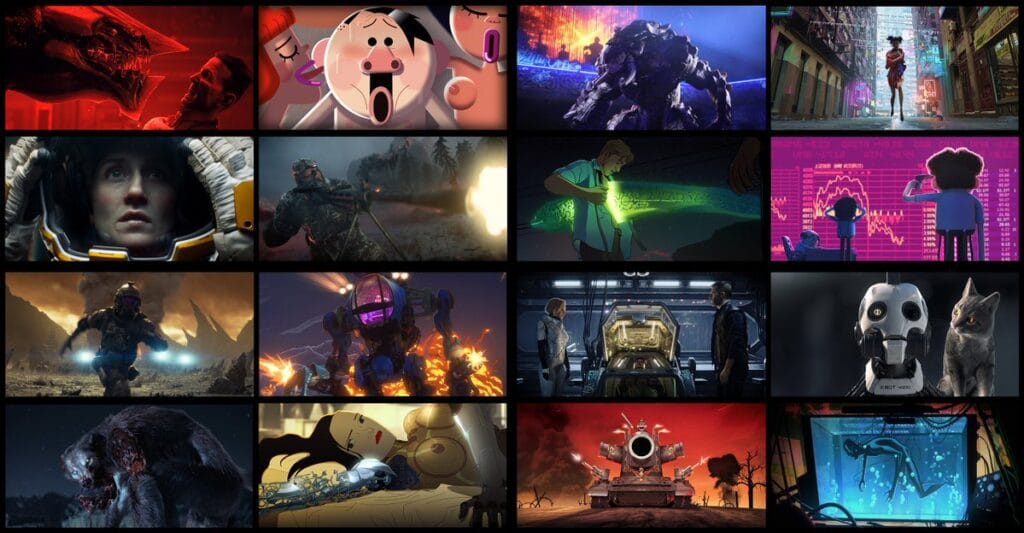Love, Passing and Robots: A Trying Treasury of Movement and Creative mind

- Love, Passing and Robots is a momentous vivified compilation series that debuted on Netflix in 2019. Made by Tim Mill operator and delivered by David Fincher, the show is a strong trial in short-structure narrating, consolidating state of the art liveliness, provocative topics, and different classes. Every episode remains solitary as a particular story, yet the series all in all is joined by its eagerness to investigate the hazier, more odd corners of human creative mind.
- The series is known for its diverse way to deal with narrating, with episodes going from six to twenty minutes. Every one is delivered by an alternate imaginative group, bringing about a wide cluster of liveliness styles, tones, and stories. From photorealistic CGI to energetic hand-drawn movement, the visual variety of Affection, Demise and Robots is quite possibly of its most convincing component.
- In spite of the assortment, the narratives are associated by repeating subjects of adoration, mortality, and innovation — ideas that the series looks at with a blend of incorrigible humor, loathsomeness, and piercing inclination. Whether it’s a tragic future, a fantastical domain, or a frightful investigation of the human mind, the show’s compilation design permits it to handle aggressive thoughts without being compelled by coherence.
- Horror, Humor, and Surprises One of the principal attributes of Adoration, Passing and Robots is its capacity to adjust fear, humor, and interest. The series revels in its NSFW nature, embracing realistic viciousness, unequivocal substance, and provocative subjects. Episodes like “Past the Aquila Crack” and “Connie’s Edge” dive into disrupting, high-idea science fiction, while “Three Robots” and “When the Yogurt Dominated” infuse dim satire into speculative narrating.

- The animals in the series are especially critical, from homicidal beasts and rebel AIs to outsiders and powerful creatures. However these components serve more than shock esteem — they frequently reflect further topics, like the delicacy of human life or the potentially negative side-effects of innovative advancement.
- Love, Passing and Robots pushes the limits of energized narrating, displaying the tremendous capability of the medium. By utilizing different imaginative groups, the series conveys new points of view and extraordinary visual methodologies in each episode. The opportunity of activity empowers the making of outwardly staggering universes, from prophetically calamitous badlands to neon-lit cyberpunk urban communities.
- With Tim Mill operator and David Fincher in charge, the series will not think twice about its adult vision. By investigating no subjects and embracing test stories, Love, Passing and Robots challenges ordinary thoughts regarding activity. It shows the way that the medium can be as interesting and significant as surprisingly realistic narrating.

- In its daring investigation of affection, passing, and innovation, Love, Demise and Robots isn’t simply a series — it’s a demonstration of the force of development and creative mind.